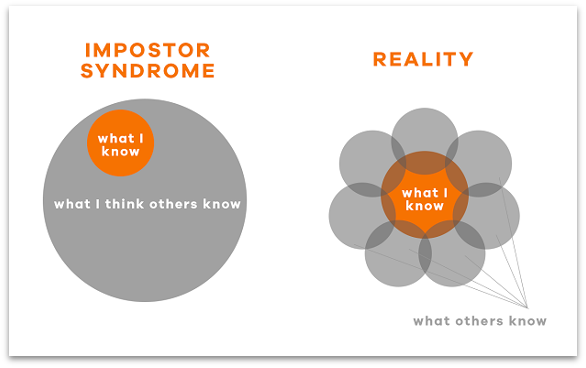Defining your Expectations in Graduate School
If you are pursuing a research or non-research based graduate degree, it is important to discuss expectations with your faculty advisor. This should be a continuous conversation: starting at the beginning and evolving as you grow in your program. Consider the following topics in your conversations. Self-reflect on your goals/needs and be true to yourself in conversations with your advisor.
What is the research group size?
- Am I going to feel like just a number? How many other people are there?
- Are there other people in the group that I can go to with questions or talk about research ideas with?
- Do I get to train undergraduate students?
- How often do I have weekly meetings?
How hands on/off is the faculty member's mentoring style?
- Does the faculty member expect this to change while I pursue my graduate degree?
- How much contact do I want and/or need with my faculty member? Does this align with their expectation?
- Other than you, who can I consult for research questions?
What are the expectations for working hours in the research group?
- Are there any restrictions on my work based on my current funding source?
- How can I juggle my courses and funding/assistantship responsibilities with my dissertation work?
- What is a reasonable amount of time I can/should spend per week on research? Do not be afraid to ask to adjust this throughout the semester as you settle in/responsibilities change.
- Ask others in the research group about their work/life balance. Make sure it aligns with what you want. If, during your PhD you find that you are losing your work/life balance, then try to re-center yourself through talking with other graduate students outside of your lab, joining a graduate student organization, and having intentional conversations with your advisor about how you can best maintain a healthy balance with your work.
Discuss your career path with your advisor - it is never too early to start preparing!
- Have they prepared someone for this career path before?
- Yes? Can they connect you with someone in this field to help you prepare and meet benchmarks?
- No? Can they connect you with a person and actions that can help you learn more and get to your next step?
Talk about the publication process and conference presentation process in your research group.
- What literature should I read? What has your lab group published recently?
- What is the typical process for publishing (and the types of papers published) in your lab? Journal articles, Conference papers, etc...? Not sure the difference? Ask!
- What does the PI view/define as a publishable unit? What are their preferred publication journals/proceedings/etc?
- Does your PI require you to publish a specific number of first author papers?
- Are there specific conferences that the research group attends?
- How do graduate students pay for conference attendance? Faculty grant, travel grant from the conference or university, or self pay?
- How/when does a student get the opportunity to attend a conference: yearly, every other year?
Discuss class registration: Does your advisor have any requirements or expectations on courses? Does the graduate program have required courses?
Wrapping up your Master's or PhD: When should I start writing my thesis or dissertation?
- To advisor: How often do you want to see my chapters? When should I start writing? What changes will it go through before submission? / what level of feedback can I expect from you?
Not sure how to maneuver challenging conversations? Check out our section on "How to have Difficult Conversations"
Recognize that handling rejection is part of being a graduate student
From a not-perfect grade on a test, a conditionally passed qualifying exam or a paper/grant that is not accepted... all people in graduate school have their own failures. It is okay.
The important parts about failing in graduate school are 1) failing gracefully and 2) learning from your failures.
If you have been accepted into graduate school, you already know that you are an excellent student. You are also surrounded by excellent students at your university. Use graduate school as a time to learn from the best of the best! You all have gaps and you all have strengths ? come together to learn and do great things!
Failure in Grad School (Dr. Toyin Alli)
Some good questions to ask regarding Handling Rejection and Imposter Syndrome:
- What does rejection/failure look like in academia and research?
- Can other Graduate Students share a time when something didn't work? How did you grow from this?
- How do I talk about research and graduate school with family members who do not understand what grad school is/why I want to pursue a graduate degree?
- How do I relieve my graduate school anxiety?
- What can I do to help reduce imposter syndrome?
- What happens if I get into a graduate program but don't get funding or my funding gets cut off?
- How can I learn to fail gracefully and learn from things that don?t go according to plan?
- Experiments sometimes don't work - how do you plan conversations and set expectations with your advisor when this happens?

Want to learn more on imposter syndrome? Check out resources on Mental Health and Wellness.
When you might need to ask for help in graduate school:
- Preparing for and passing exams (Qualifying/Preliminary exams)
- Taking a challenging course
- Changes to your funding
- Advisor related issues
- Dissertation writing
- Legal and financial help
- Mental health concerns
- Relationship conflicts
- Juggling your responsibilities/managing your time
- Issues related to physical health, wellbeing, housing, and/or food
- Personal financial matters (holding yourself over between traveling to conferences, etc...)
If you need help in a class, you can go to the course Teaching Assistant (TA), peers who have taken the class already and/or any tutoring or other university offices that might have additional support. Ask around to see what would be most helpful to you.
How can you ask for help?
Ask for feedback:
- Ask for feedback frequently and early on
- Be specific about the specific things that you need feedback on
- Look for all the possibilities that you have to gain feedback (peers, mentors, advisor, writing lab)
Prepare for meetings when you are asking for help:
- Practice with your peers
- Video chats are better than emails (but it is okay to have things in writing as well!)
- Research question? Know your literature and read papers ahead of time!
- Want to stay on track during your question? Make a PowerPoint presentation!
Who can you ask for help?
- Your Advisor
- Other students in your research group
- Other faculty from your discipline
- Your research community (from a conference, research center, etc...)
- Administrators
- Mentors
- Other advocates
Bottom line: you can (and should!) ask for help in graduate school when you need it.

